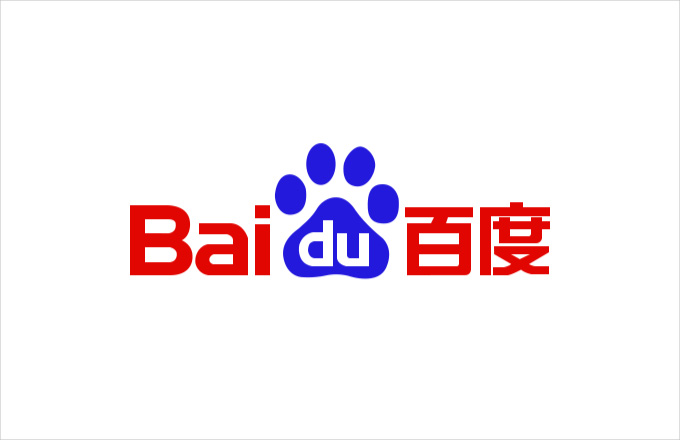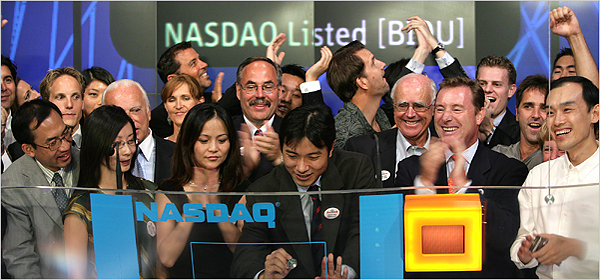Last Updated on June 11, 2024

“We don’t have a back door, if you want a better life, a better job in the future you will have to study hard and ensure you get into the best college.”
He became passionate about computers while studying in high school. Numerous of programming competitions he took part in and the best score in the city at the final exam in 1987 allowed him to enter Peking University where he studied information management. In 1991 after getting a Bachelor of Science degree Robin Li was already prepared to leave his homeland. He just simply couldn’t continue pursuing his passion in China.

It was a tough path waiting for him after graduation. He started his career serving at New Jersey division of Dow Jones and Company, IDD Information Department, as a software developer for the online edition of The Wall Street Journal. Robin was smart enough to take advantage of his close connections with the famous journal and learn the core fundamentals in the financial and economic fields. In the meantime, he furtively worked on the algorithms of search engines.A breakthrough happened in 1996. While still working with IDD, he developed his first search engine page ranking algorithm- Rankdex. It was that very algorithm he’d later use for Baidu.

“The moment I created this thing I was very excited. I told my boss and pushed him. But he wasn’t very excited.”
Robin Li
He couldn’t give up on his dreams. He later attended a computer conference in Silicon Valley and set up his own booth to show his work. It was William I. Chang, the chief technology officer at Infoseek, an Internet search engine party owned by Disney, who recognized the talent. He recruited Robin Li straight away to oversee search engine development.

Still, the work at Infoseek couldn’t brighten up his life. Disney’s losing interest in the business prospects of search didn’t correspond with Li’s passion. However, Robin had been witnessing the technology boom happening in Silicon Valley. He got fanatical about it, at the same time trying to solve himself one of the earliest problems in the Internet industry-the problem of sorting information.
![]()
It was the summer of 1998 during the picnic in Silicon Valley when Li’s friend Eric Xu, a young biochemist at that time, introduced him to John Wu, the head of Yahoo’s search engine team. Mr. Wu was deeply impressed by Robin’s determination despite the pessimism surrounding search.
“The people at Yahoo didn’t think search was all that important, and so neither did I. But Robin, he seemed very determined to stick with it. And you have to admire what he accomplished.” John Wu
That meeting determined Baidu’s future path. With good contacts in Silicon Valley, two friends formed their own Internet company in 1999. They raised US $1.2 million from two Silicon Valley venture capital firms, Integrity Partners and Peninsula Capital, within the first months after building the company. With these seed money in hand Robin Lu and Eric Xu flew back to China and founded Baidu in a hotel room overlooking Peking University.

Later in September 2000 they received $10 million from other venture capital firms, IDG Technology Venture and Draper Fisher Jurvetson.
“When I came back I was prepared for a rough life. It turns out it wasn’t so bad.”
Robin Li
Before becoming an independent search engine, Baidu was offering search services to different Chinese portals. In September 2001, the company started its own site-Baidu.com.
The site was gradually making profit by allowing customers to bid for ad space and then pay Baidu each time a customer clicked on an advertisement.
In Aug 5th 2005 Baidu finally went public on NASDAQ with US $ 27 share. By the end of the day Baidu’s shares closed at US $122, rocking over 350%. It was the biggest opening on Nasdaq since the Dot-com bubble. In one day Baidu became a $4 billion company. Most of the analytics said that Baidu’s stock was drastically over-valued. Eventually, in the next few days, Baidu’s shares closed to US $87.75, giving it the capitalization of $2.94 billion.

In the first half of 2005, the company’s revenue jumped 190%, to $40.9 million. It was a remarkable beginning for one of the most powerful search engines on the globe…
“Over the past six years I’ve had many difficulties, but I never lost my passion”
Robin Li
YOU MAY ALSO LIKE
- Transmedia Marketing
- wechat kol
- marketing in china
- pinduoduo
- what is social crm
- wechat marketing
- digital content marketing
- Digital Landscape

